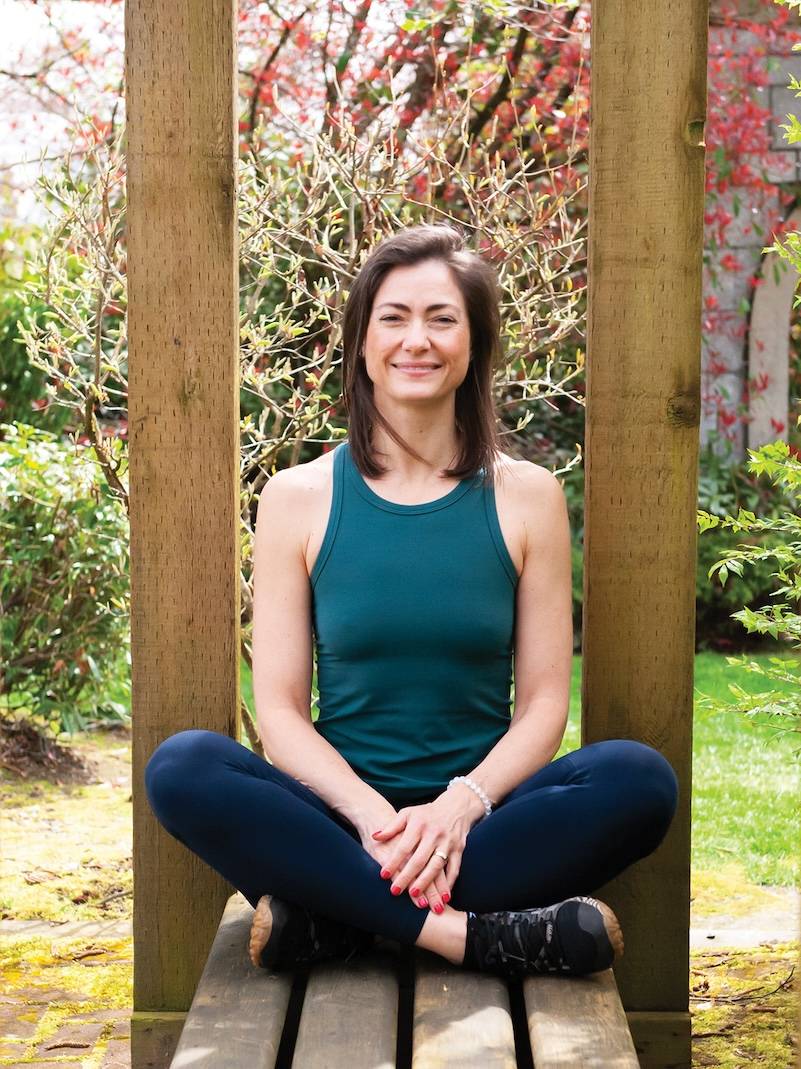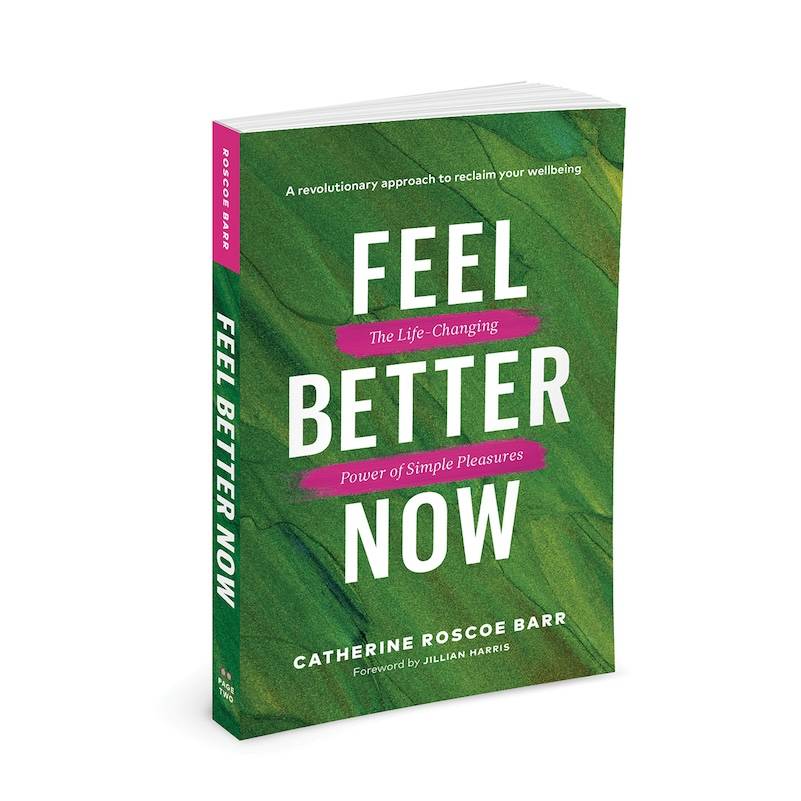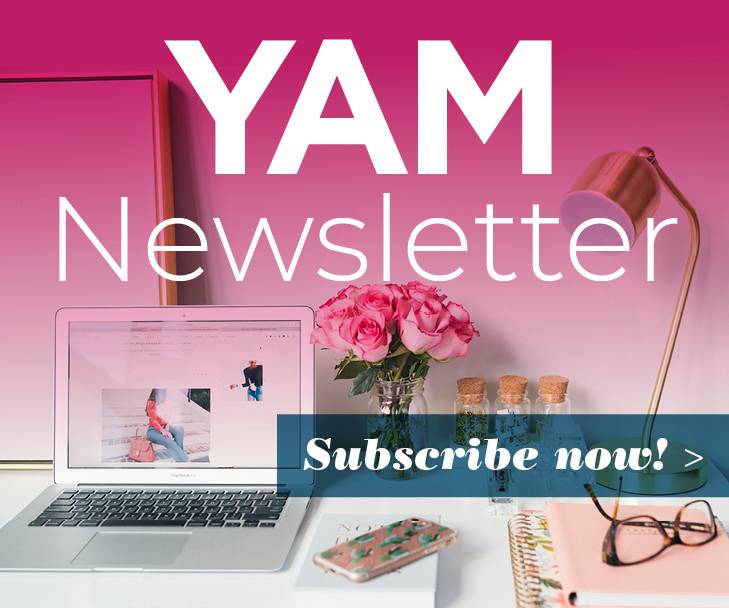BY JOANNE SASVARI
A new book encourages us to keep pleasure, happiness and nourishing habits in mind.

How do you feel right now? A little tired, a little stressed, maybe a little regretful about that chocolate bar you snorfled back during the mid-afternoon slump? Well, Catherine Roscoe Barr knows you could probably feel a lot better — and it wouldn’t take much to do so, either.
You may have met Barr at one of the wellness retreats she leads every January at the Oak Bay Beach Hotel, sat in on one of her coaching workshops or stumbled across one of the many articles she’s written for publications across Canada. Now she’s taken all she’s learned in a dozen years of wellness coaching and distilled it into a new book called Feel Better Now: The Life-Changing Power of Simple Pleasures (A Revolutionary Approach to Reclaim Your Wellbeing).
The idea is to take everything she covers in one of her five-day retreats and share it with everyone, especially those who can’t afford what is, after all, something of a luxury. “I just wanted to put my retreat in a book so it’s accessible to everyone,” she says.
What makes this book different from so many of the others that promise transformation is that it doesn’t make you feel bad about yourself, set impossible-to-maintain goals or shill gimmicky cure-alls. Instead, it offers practicable advice based on both science and the principles of mindfulness, while extolling the virtues of pleasure.
“My advice is super boring. There’s no fads, it’s all about doing what you know,” Barr says. “We all know we should move our bodies, eat better and have better relationships. But there is some disconnect between what we know and what we do.”
Change Your Mind
So why should you listen to Barr? It’s not just that she has a degree in neuroscience and spent years as a fitness instructor and lifestyle journalist before becoming fascinated by mindfulness and wellness. She’s someone who’s been there, just like you.
She remade herself as a wellness coach and founded her brand, The Life Delicious, because she says, “I want to feel delicious in my body, in my spirit, in my life.”
At the time she was working as a fitness instructor, the trend was all about pain and deprivation, gruelling workouts and restricted-calorie diets. Yet despite all that hard work, her clients rarely met their goals, and neither did she. As a result, she became “burnt out, frustrated and depleted.” She found herself eating poorly, drinking too much, doing all the self-destructive things we do when we’re unhappy. So she quit. She found joy in food and travel, and then she discovered mindfulness.
“I want to feel delicious in my body, in my spirit, in my life.”
And now the book.
It took Barr two years to write, although she’d been thinking about it for much longer. It includes a foreword by lifestyle entrepreneur and media personality Jillian Harris, who describes how Barr helped her overcome her own struggles with feeling depleted and burnt out. “Reconnecting with ourselves through small, simple pleasures is the revolution we all need right now,” Harris writes. “It was definitely the revolution I needed.”
The book is divided into four sections: The Rescue, which focuses on the importance of taking care of our well-being; The Revolution, which covers self-coaching and setting boundaries; The Rituals, which offers practices for exercise, nutrition and rest; and Reverence, a reminder to offer the compassion you feel for others to yourself.

Of them, perhaps the second is the most significant. The Revolution encourages us to change our inner dialogue from one that is negative and self critical to one that is positive and based on constructive questions.
“That’s the revolution, that’s the new operating system,” Barr says, noting that if we ask ourselves good questions, we will come up with good answers. “It could be as basic as: What do I know? What do I want? How will I care for myself? And most importantly: How did that feel?”
It’s based on the concept of neuroplasticity, which is basically the brain’s ability to rewire itself. Barr explains that there are two types of neuroplasticity: Experience-dependent neuroplasticity is a passive process in which we unconsciously reinforce habits — often destructive ones — through repetition; self-directed neuroplasticity, on the other hand, is an active process in which we choose to develop positive and enduring habits.
By being mindful and asking the right questions, we can reinforce positive thoughts and, ultimately, better habits. And it’s something we all can do, in just a minute or two a day.
“It’s so simple!” Barr exclaims. “That’s why I want people to know this.”
Simple Pleasures
Of course, if it really was that simple, we’d all be doing it already.
But our fast-paced, overly connected world could have been perfectly designed to make us feel ill at ease, which is why there is a global wellness industry worth an estimated $6 trillion.
“I think it’s just a disconnect from the truth of who we are. Everything is so fast,” Barr says.
We have to make time and space for simple pleasures, for nourishing food and gentle movement, for adequate rest and time spent with the people we love. We have to recognize that some things that make us feel good in the moment will make us feel much worse later on. And we have to be flexible, to forgive ourselves when we can’t stick to a rigorous workout schedule or diet, to have a plan B, or even a plan C or D, to fall back on when things go awry.
“Set aside five minutes every day to ask yourself three questions: What do I want? How did that feel? How can I feel better tomorrow?”
“What would today look like if you look at it through the lens of simplicity?” Barr asks, noting that her words for the year are “pleasure and simplicity.”
When asked for one single thing we can all do to feel better right now, she says, “Set aside five minutes every day to ask yourself three questions: What do I want? How did that feel? How can I feel better tomorrow?” It’s a simple mindfulness practice that can instantly help you identify the difference between constructive and destructive habits and, ultimately, make better choices.
After all, Barr says, “How do you want to feel? Life is so short and precious.”




